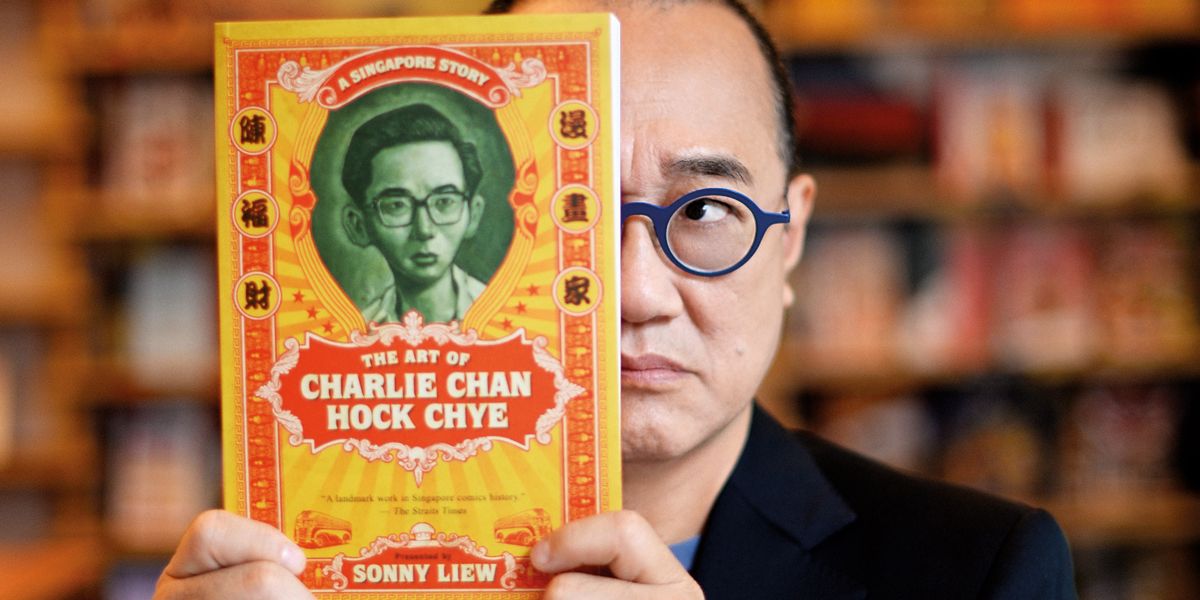Epigram Books founder Edmund Wee is a game changer in the traditional world of publishing. He tells us why he’s determined to make Singapore novels relevant to local readers, one arresting cover at a time.
For a publishing house that’s not even five years old, Epigram Books has made an impact on Singapore’s literary scene, not least because its attention to design has added a potent punch to the visual appeal of local titles.

That owes a lot to founder Edmund Wee’s background. The Straits Times’ former design chief left journalism in 1991 to start a design agency that became the first in the world to win the prestigious Red Dot Grand Prix for two consecutive years (2006 and 2007). In 2008, he was named Designer of the Year at the President’s Design Award.
“When we came on to the literary scene, we upped up the ante,” says the puckish 63-year-old. “We don’t just publish a book and hope it sells. Good design, typography, paper stock, a catchy title, the cover blurbs — these are all important things.”
Edmund fell in love with literature as a psychology student, thanks to an assigned reading of the 1943 Ayn Rand novel The Fountainhead. “It changed my life,” he says. “I didn’t grow up with many books, so I wasn’t really a reader. That novel made me realise that if you strongly believe in something, you must fight for it. Suddenly, I had a sense of direction.”
That belief drove his dive into publishing. It’s not the easiest business for making profits — the company has just crept into the black, but only if you include the government grants it received last year. But Edmund, who is married with two children, remains resolute about his passion project. “Making money is not the only reason in life to do something,” he asserts. “We need tatler_tatler_stories.”
There is now a generation of Singaporeans who are full-time theatre practitioners, dancers, artists. But we don’t really have full-time writers. That’s the last bastion, and that’s because there is not enough support.
As for what tatler_tatler_stories he thinks deserve to be published, Edmund says he considers both commercial viability and whether “it gives an insight into Singapore and contributes to debate of what Singapore is about”. Epigram has published over 100 local authors so far, and that’s excluding those in short story anthologies. Its most visible success to date is graphic novelist Sonny Liew’s The Art of Charlie Chan Hock Chye, which traces the life of a fictional comics artist through Singapore’s formative years. It received rave reviews in international publications like The Economist, topped Amazon’s bestseller list for art of comics and manga upon its US launch in March, and debuted at No. 8 on The New York Times’ hardcover graphic novels bestseller list.
In Singapore, it has sold close to 10,000 copies so far — a remarkable feat, since a local literary work typically sells about 500 to 1,000 copies. This success boils down to the fact that “it’s a brilliant book that mirrors the development of Singapore”, Edmund believes, rather than the unexpected bout of publicity in 2015 when the National Arts Council withdrew a publishing grant due to what it deemed politically “sensitive content”.
Another title that has drawn international attention is Amanda Lee Koe’s Ministry of Moral Panic, longlisted for the Frank O’Connor International Short Story Award 2014 and winner of the Singapore Literature Prize for Fiction the same year. In March, the publisher scored its first nomination for the Bologna Best Children’s Publisher of the Year.
Edmund’s next goal is to get an Epigram book into contention for the Man Booker Prize. “How it works in Singapore is, no matter how good you are, people don’t make qualitative judgements, only quantitative ones. So if it wins an international prize, then the writer will be recognised here,” he says.
To nurture more storytellers, he launched the $20,000 Epigram Books Fiction Prize last year. “There is now a generation of Singaporeans who are full-time theatre practitioners, dancers, artists. But we don’t really have full-time writers. That’s the last bastion, and that’s because there is not enough support,” he explains. At least seven books from the 2015 submissions will be published by Epigram Books this year, and Edmund definitely plans to keep the initiative going. “I publish books about Singapore by Singaporeans for Singaporeans. There are many tatler_tatler_stories yet to be written.”
Photography: Max Chan/101Teamwork; Grooming: Vinna Er
